spot on.That's what the frog said. Elon must be a prince. LOL
Welcome to Tesla Motors Club
Discuss Tesla's Model S, Model 3, Model X, Model Y, Cybertruck, Roadster and More.
Register
Install the app
How to install the app on iOS
You can install our site as a web app on your iOS device by utilizing the Add to Home Screen feature in Safari. Please see this thread for more details on this.
Note: This feature may not be available in some browsers.
-
Want to remove ads? Register an account and login to see fewer ads, and become a Supporting Member to remove almost all ads.
You are using an out of date browser. It may not display this or other websites correctly.
You should upgrade or use an alternative browser.
You should upgrade or use an alternative browser.
Climate Change / Global Warming Discussion
- Thread starter Raffy.Roma
- Start date
-
- Tags
- Energy Environment Policy
mspohr
Well-Known Member
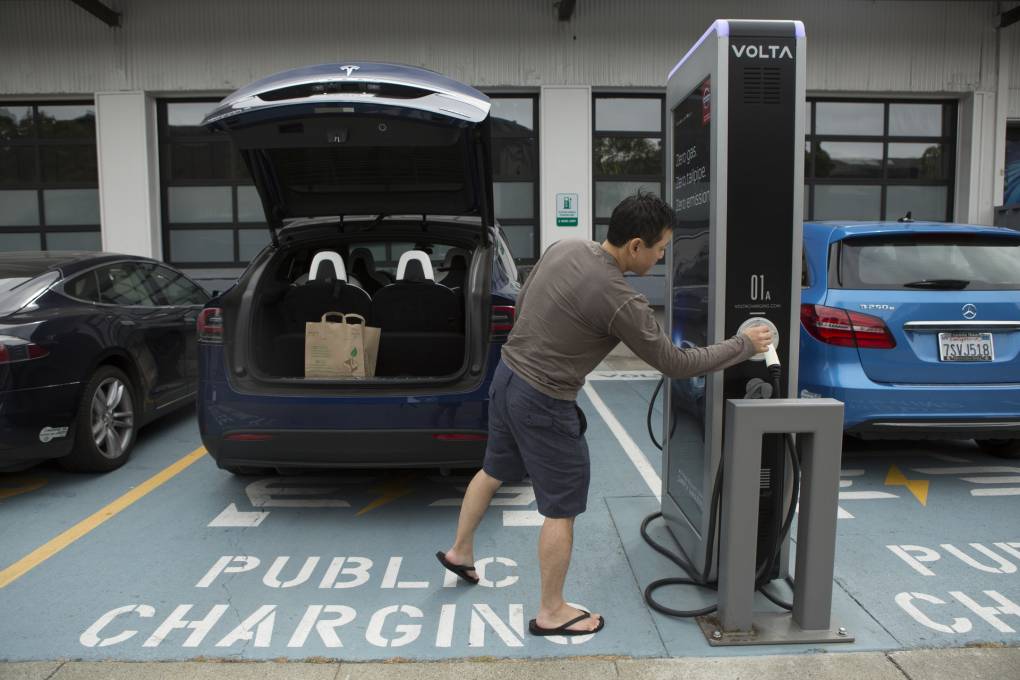
Are Zero-Emission Vehicles Making a Dent in California's Air Pollution? | KQED
Zero-emission vehicles have become much more popular over the last decade. How much have they done to improve air quality?
Now time for a little math. There are about 29 million cars on California roads right now, and only 1.1 million of them are zero-emission vehicles. Is that enough to clean up the air? “From a big-picture perspective, yes,” said Michael Benjamin, chief of air quality planning and science at the California Air Resources Board, or CARB, the state agency that tracks these things. “The sale of electric vehicles in California, which is increasing, is contributing to improvements in air quality that we’re seeing.”
Over the past 20 years, the air quality in the Bay Area and statewide has improved. CARB data shows a clear downward trend in the number of days where air quality has exceeded limits set by the federal Clean Air Act.
When it comes to how much zero-emission cars have contributed to those air improvements, CARB says it’s hard to quantify, but in the Bay Area, it could be about 3% to 4%. Those numbers may sound low, but Benjamin says they’re sure to grow as more people phase out combustion engines.
mspohr
Well-Known Member

It’s Payback Time
New studies call for reparations from oil companies and governments responsible for climate change.
Until now the fossil fuel industries have not had to account for the full costs to society of their products. Billions of dollars in climate-related expenses have been hidden inside the budgets for disaster recovery, health programs, national security and numerous other accounting sleights of hand that shield the rippling financial impacts of climate change from the press and the public. But as the climate crisis intensifies, new studies are lifting the lid on the industry’s free pass, and revealing just how much society spends to keep fossil fuels flowing and responding to greenhouse-gas triggered extremes. One of them recently suggested the tab would be $70 trillion, or more than double the U.S. national debt.
The call for “reparations” was backed up by a Climate Accountability Institute survey of 738 global economists, who assessed past patterns of climate-related expenditures and proposed $70 trillion as the figure that most closely approximates the coming costs from climate change through 2050.

Are Zero-Emission Vehicles Making a Dent in California's Air Pollution? | KQED
Zero-emission vehicles have become much more popular over the last decade. How much have they done to improve air quality?www.kqed.org
Now time for a little math. There are about 29 million cars on California roads right now, and only 1.1 million of them are zero-emission vehicles. Is that enough to clean up the air? “From a big-picture perspective, yes,” said Michael Benjamin, chief of air quality planning and science at the California Air Resources Board, or CARB, the state agency that tracks these things. “The sale of electric vehicles in California, which is increasing, is contributing to improvements in air quality that we’re seeing.”
Over the past 20 years, the air quality in the Bay Area and statewide has improved. CARB data shows a clear downward trend in the number of days where air quality has exceeded limits set by the federal Clean Air Act.
When it comes to how much zero-emission cars have contributed to those air improvements, CARB says it’s hard to quantify, but in the Bay Area, it could be about 3% to 4%. Those numbers may sound low, but Benjamin says they’re sure to grow as more people phase out combustion engines.
It really depends how many miles and terrain are covered by each. Many of the EVs are in SF where it is hilly, so it's even more emission reduction with an EV!
JRP3
Hyperactive Member
Just in the USA, 36 million cows are slaughtered every year. 200,000 is 0.5%. Barely noticeable.
But does it really matter, globally, unless the consumption of cows also changes which is something that really needs to happen?
Cows are only cheap nutrition if you ignore the land, water and pollution go into manufacturing them and are responsible for 15% of global global-warming emissions.
But does it really matter, globally, unless the consumption of cows also changes which is something that really needs to happen?
Cows are only cheap nutrition if you ignore the land, water and pollution go into manufacturing them and are responsible for 15% of global global-warming emissions.
mspohr
Well-Known Member
I've stopped listening to this stupid person.
mspohr
Well-Known Member
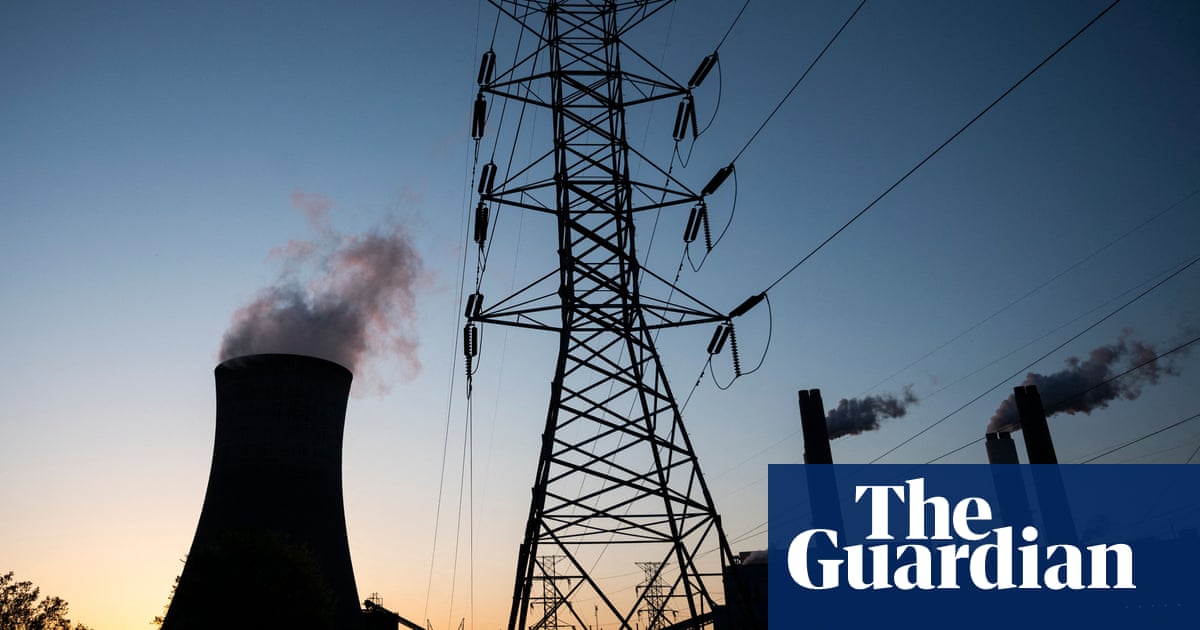
Rich countries with high greenhouse gas emissions could pay $170tn in climate reparations
Proposed compensation would be paid to developing countries that must transition away from fossil fuels
Rich industrialised countries responsible for excessive levels of greenhouse gas emissions could be liable to pay $170tn in climate reparations by 2050 to ensure targets to curtail climate breakdown are met, a new study calculates. The proposed compensation, which amounts to almost $6tn annually, would be paid to historically low-polluting developing countries that must transition away from fossil fuels despite not having yet used their “fair share” of the global carbon budget, according to the analysis published in the journal Nature Sustainability.
It is the first scheme where wealthy countries historically responsible for excessive or unjust greenhouse emissions including the UK, US, Germany, Japan and Russia, are held liable to compensate countries which have contributed the least to global heating – but must decarbonise their economies by 2050 if we are to keep global heating below 1.5C and avert the most catastrophic climate breakdown
Norbert
TSLA will win

Arctic Summer Could Be Practically Sea-Ice-Free by the 2030s
In a new study, scientists found that the climate milestone could come about a decade sooner than anticipated, even if planet-warming emissions are gradually reduced.
The first summer on record that melts practically all of the Arctic’s floating sea ice could occur as early as the 2030s, according to a new scientific study — about a decade sooner than researchers previously predicted.

Arctic Summer Could Be Practically Sea-Ice-Free by the 2030s
In a new study, scientists found that the climate milestone could come about a decade sooner than anticipated, even if planet-warming emissions are gradually reduced.www.nytimes.com
Ditto,lmao at someone watching a Hollywood movie and conflating it to realitySorry, I don't subscribe to the man made global warming fraud.
Science is clear that temperatures increase, THEN CO2 increase. Al Bore is a giant fraud and his "documentary" is filled with it.
The CO2 produced by ICE is a tiny, tiny fraction of all CO2 produced. But I digress...
PS: please, don't watch a Hollywood movie and think you understand climate
B
betstarship
Guest
mspohr
Well-Known Member
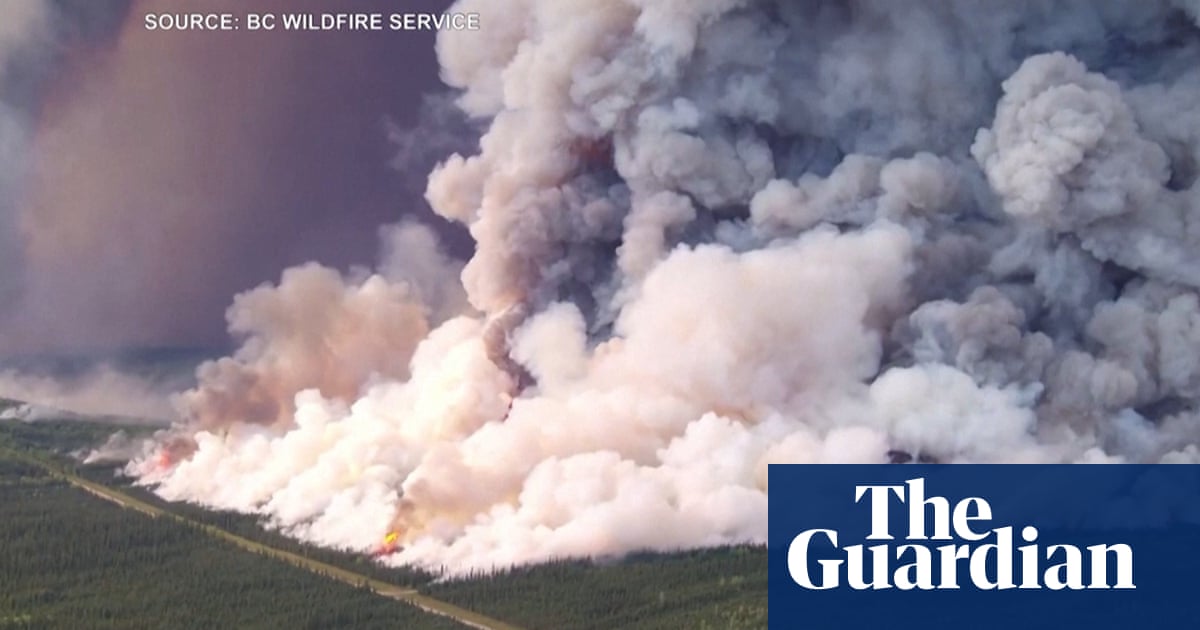
Canada’s wildfires are part of our new climate reality, experts and officials say
Canada is on track to experience its most severe wildfire season on record, and it’s part of a trend experts say will intensify
Canada’s ongoing wildfire season is a harbinger of our climate future, experts and officials say. The fires are a “really clear sign of climate change”, said Mohammadreza Alizadeh, a researcher at McGill University in Montreal. Research shows that climate change has already exacerbated wildfires dramatically. A 2021 study supported by the National Oceanic and Atmospheric Association found that climate change has been the main driver of the increase in hot, dry fire weather in the western US. By 2090, global wildfires are expected to increase in intensity by up to 57% thanks to climate change, a United Nations report warned last year. Canada is on track to experience its most severe wildfire season on record, national officials said this week. It’s part of a trend experts say will intensify as the climate crisis makes hotter, drier weather and longer fire seasons more common
mspohr
Well-Known Member
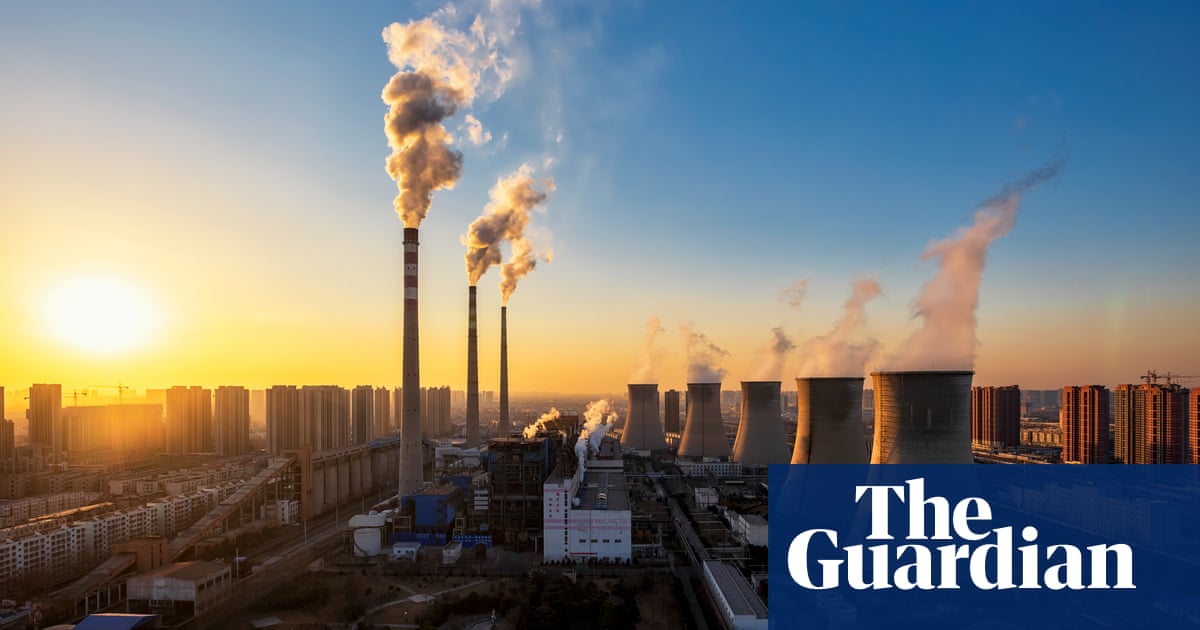
Global greenhouse gas emissions at all-time high, study finds
Scientists say world is burning through ‘carbon budget’ that can be emitted while staying below 1.5C
Greenhouse gas emissions have reached an all-time high,threatening to push the world into “unprecedented” levels of global heating, scientists have warned. The world is rapidly running out of “carbon budget”, the amount of carbon dioxide that can be poured into the atmosphere if we are to stay within the vital threshold of 1.5C above pre-industrial temperatures, according to a study published in the journal Earth System Science Data on Thursday. Only about 250bn tonnes of carbon dioxide can now be emitted, to avoid the accumulation of CO2 in the atmosphere that would raise temperatures by 1.5C. That is down from 500bn tonnes just a few years ago, and at current annual rates of greenhouse gas emissions, of about 54bn tonnes a year over the past decade, it would run out well before the end of this decade.
mspohr
Well-Known Member

Countries have not yet agreed to put fossil fuel phase-out on Cop28 agenda
Director-general of climate talks, Majid Al Suwaidi, says governments have not reached agreement to discuss key issue
UN climate talks this year might skirt the vital question of whether and how to phase out fossil fuels, as nations have not yet agreed to discuss the issue, one of the top officials hosting the talks has said. Majid Al Suwaidi, director-general of the Cop28 climate talks for its host nation, the United Arab Emirates, said governments were not in agreement over whether the phaseout of fossil fuels should be on the agenda for the conference, which begins in November.
Al Suwaidi has attended many conferences of the party (Cop) meetings under the UN framework convention on climate change. The UAE has come under fire for its choice of Sultan Al Jaber, the head of the country’s national oil company, Adnoc, as president of Cop28. Adnoc is planning major increases in its oil and gas production capacity. On Thursday, civil society groups in Bonn will protest against “conflicts of interest” over Al Jaber’s dual role in the negotiations. A preparatory session for Cop28, is being held this week in Bonn.
B
betstarship
Guest

Is 2023 going to be the hottest year on record?
Climate scientists say rising C02 levels paired with an El Niño could make 2023 the hottest year on record.
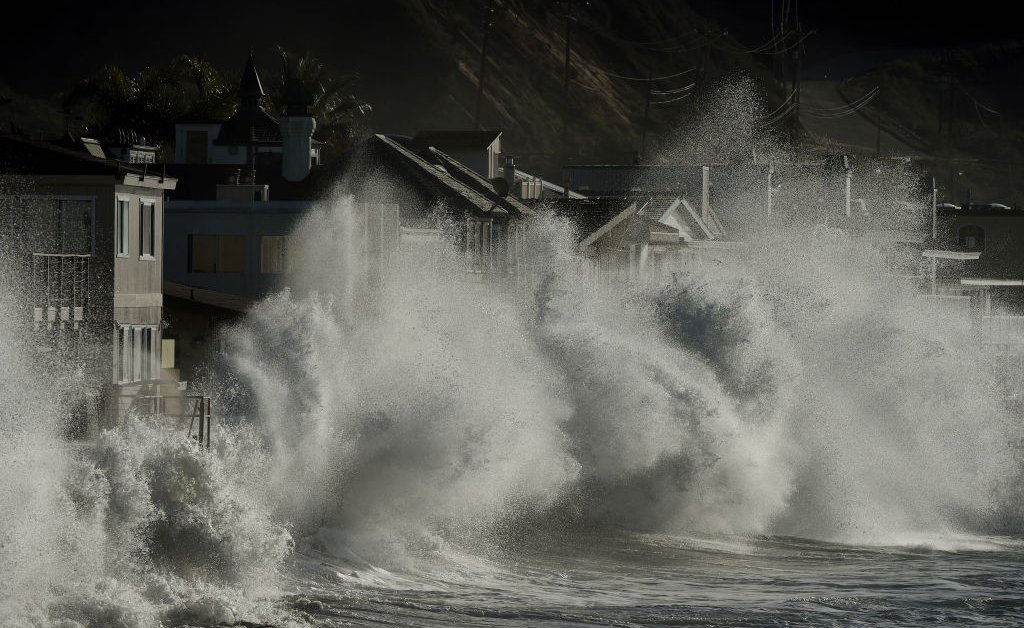
The Start of El Nino Has Officially Arrived, Says NOAA
"The onset of El Nino has implications for placing 2023 in the running for warmest year on record."
It's really clear now that something happened in March that triggered a big step change in SST anomalies, especially in the North Atlantic...
That sudden spike at the end is not a pointer, North Atlantic SST anomalies have exceeded +1C
CICERO-led study finds global warming effect of leaked hydrogen almost 12x stronger than CO2
A study led by Norwegian climate center CICERO has found that the global warming effect of leaked hydrogen is almost 12 times stronger than that of CO2. The open-access paper is published in Nature Communications Earth & Environment. Unlike exhaust from burning coal and gas that contains CO2...
www.greencarcongress.com
Similar threads
- Replies
- 19
- Views
- 1K
- Replies
- 48
- Views
- 4K
- Replies
- 64
- Views
- 4K
- Replies
- 52
- Views
- 33K
- Replies
- 4
- Views
- 12K


